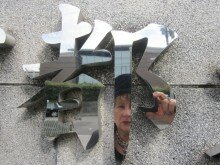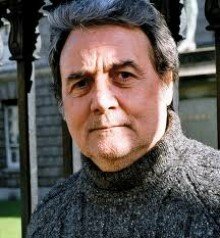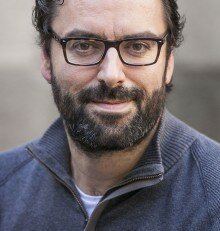Contemporary Scottish poetry
Contemporary Scottish poetry underwent an astonishing renaissance in the years 1979-1997, which has in many respects continued to the present day. This period, coincidentally or otherwise, immediately followed the death of Scotland’s controversial elder statesman of poetry, Hugh MacDiarmid (1892-1978). It was also the gap between the failed Devolution vote and the eventual establishment of a Scottish parliament.
During this time, the seven key figures in the senior generation of poets, Sorley MacLean, Norman MacCaig, Edwin Morgan, Iain Crichton Smith, George Mackay Brown, W.S.Graham and Robert Garioch all achieved a late blossoming of their talents across the three main languages of Scotland: Gaelic, Scots and English. Of that remarkable generation, only Edwin Morgan, Scotland’s Makar, or Laureate, is still with us.
A new, equally gifted, generation came into maturity in the early eighties, including figures such as Douglas Dunn, Tom Leonard and Liz Lochhead; and Glasgow writing in particular became known for its subtle intermingling of politics, demotic language and performance sensibility. Scotland in this period was experiencing a type of cultural dissidence as its writers articulated protests against the Thatcher government’s use of it as a testing ground for aggressive and unpopular policies, and the continued growth of poetry was matched by developments across the arts – painting, music, drama and the novel all demanding and achieving international status. As Alasdair Gray put it ‘Write as if you live in the early days of a better nation.’
This is the background against which a remarkable younger generation of poets emerged who have combined and developed many of their predecessors’ techniques and interests. John Burnside, Robert Crawford, Kathleen Jamie, Jackie Kay and Don Paterson produced a poetry of remarkable variety and vitality, embodying renewed spirituality, formal virtuosity, a re-awakened historical perspective, sensuous engagement with landscape, and playful linguistic variety. These writers have published widely, and have now achieved positions of authority within the British publishing scene as well as the Scottish academy, and, importantly, their ranks have been augmented by more recent figures.
For the latest Scottish poets to emerge, many of their predecessors’ battles might appear to have been fought and won. No longer is there much stigma attached to writing in one of Scotland’s ‘other tongues’ (though the question of readership has not been resolved). No longer is the once macho climate of Scottish letters a completely oppressive force for women writers to overcome. No longer are poets asked to observe a false dichotomy of allegiance to a Scottish or English mainstream. It is as possible to be an English poet writing in Scotland as a Scottish poet writing in England. Everything seems possible, and yet . . .
Be careful what you wish for is an old adage, and it may seem that, since the establishing of the Parliament, the creative fire has dimmed a little, the ‘new’ writers are a little more middle-aged, and not all of those fiercely fought for certainties will stand the test of time. That is why it is as important now as ever to nourish and cherish those voices which continue to push at the boundaries of what it means to be a Scottish poet, indeed, who may even question whether there still needs to be such a category. That is what these pages are for.







